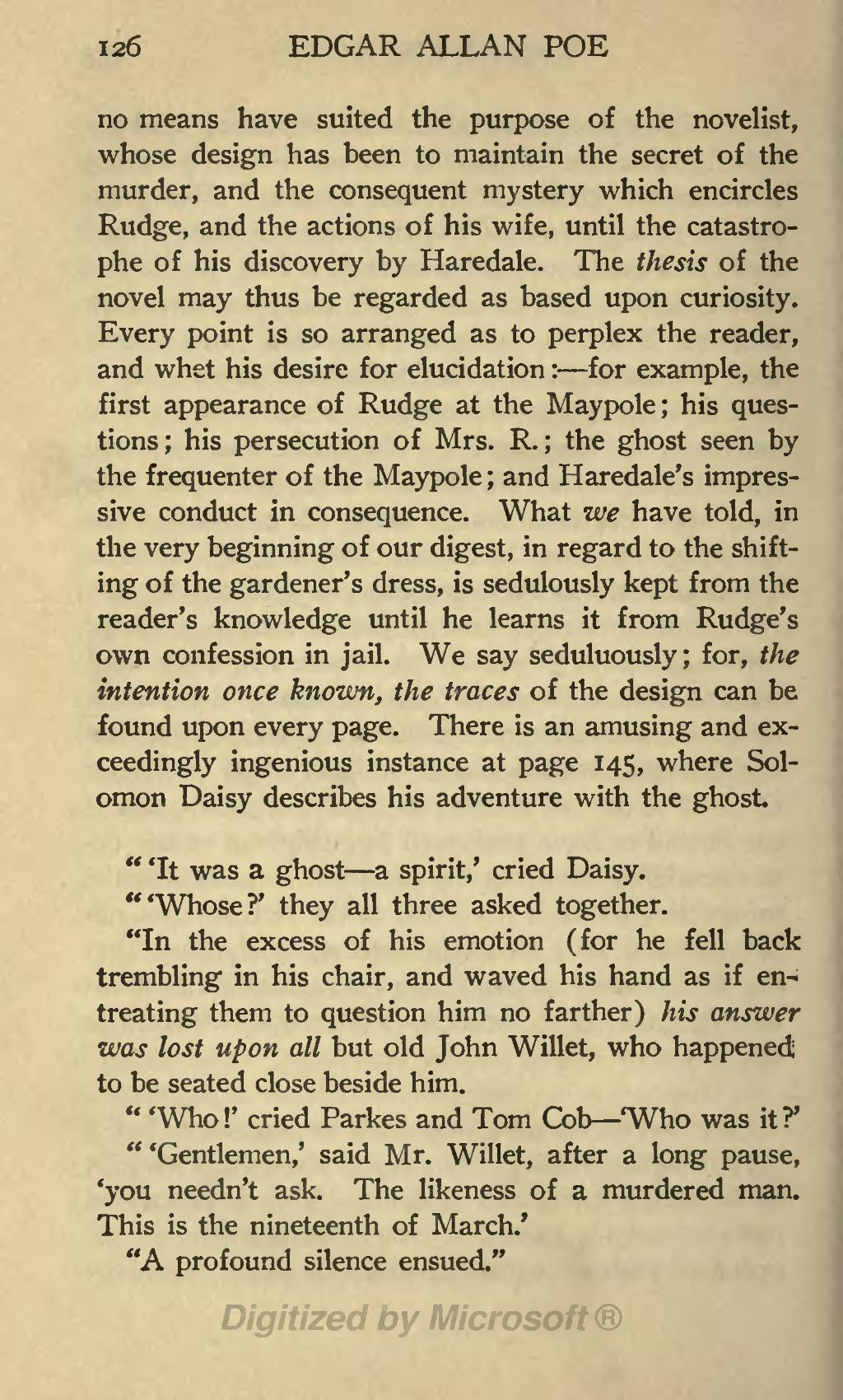no means have suited the purpose of the novelist, whose design has been to maintain the secret of the murder, and the consequent mystery which encircles Rudge, and the actions of his wife, until the catastrophe of his discovery by Haredale. The thesis of the novel may thus be regarded as based upon curiosity. Every point is so arranged as to perplex the reader, and whet his desire for elucidation:—for example, the first appearance of Rudge at the Maypole; his questions; his persecution of Mrs. R.; the ghost seen by the frequenter of the Maypole; and Haredale's impressive conduct in consequence. What we have told, in the very beginning of our digest, in regard to the shifting of the gardener's dress, is sedulously kept from the reader's knowledge until he learns it from Rudge's own confession in jail. We say seduluously; for, the intention once known, the traces of the design can be found upon every page. There is an amusing and exceedingly ingenious instance at page 145, where Solomon Daisy describes his adventure with the ghost.
"'It was a ghost—a spirit,' cried Daisy.
"'Whose?' they all three asked together.
"In the excess of his emotion (for he fell back trembling in his chair, and waved his hand as if entreating them to question him no farther) his answer was lost upon all but old John Willet, who happened to be seated close beside him.
"'Who!' cried Parkes and Tom Cob—'Who was it?'
"'Gentlemen,' said Mr. Willet, after a long pause, 'you needn't ask. The likeness of a murdered man. This is the nineteenth of March.'
"A profound silence ensued."
